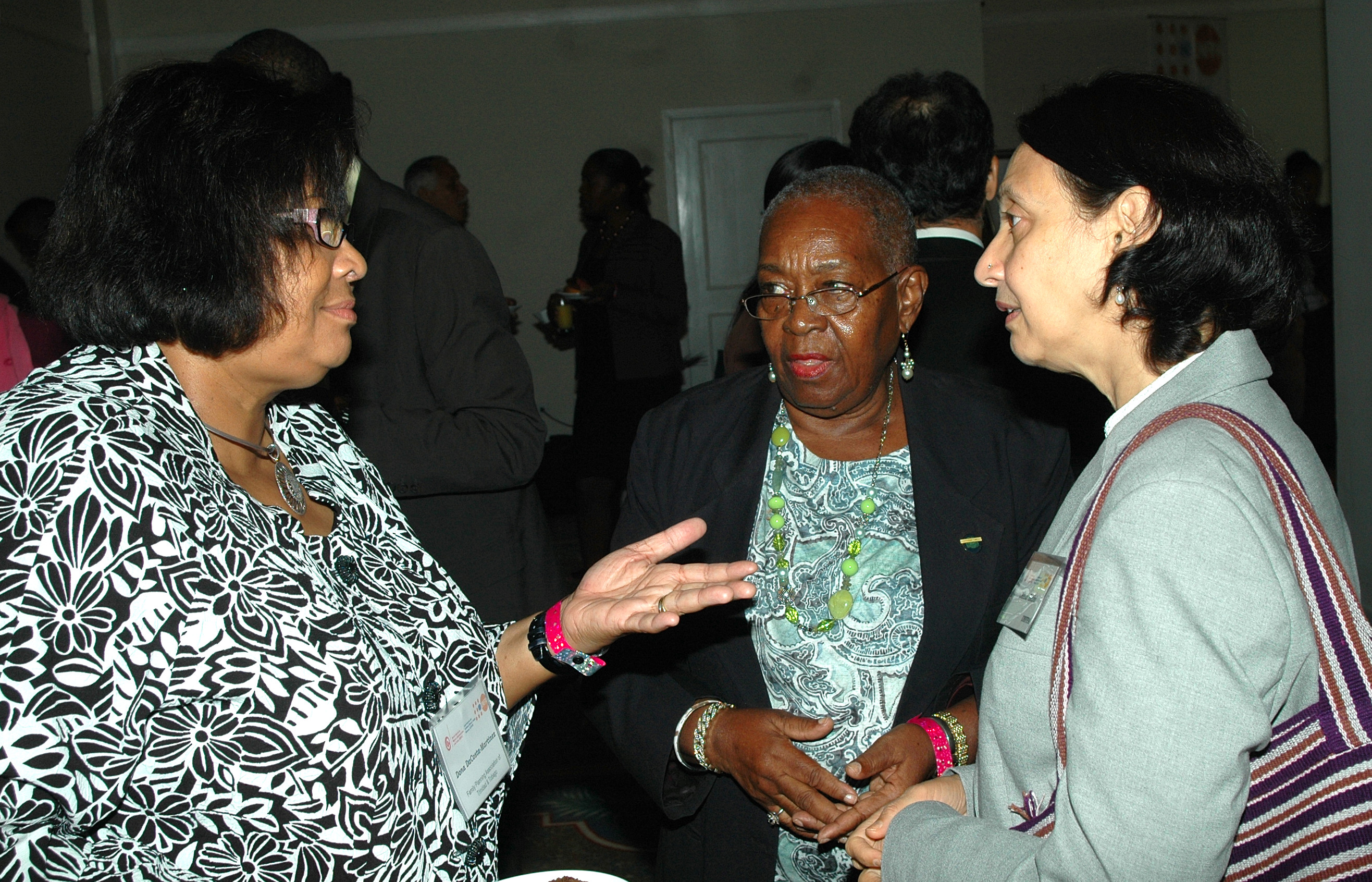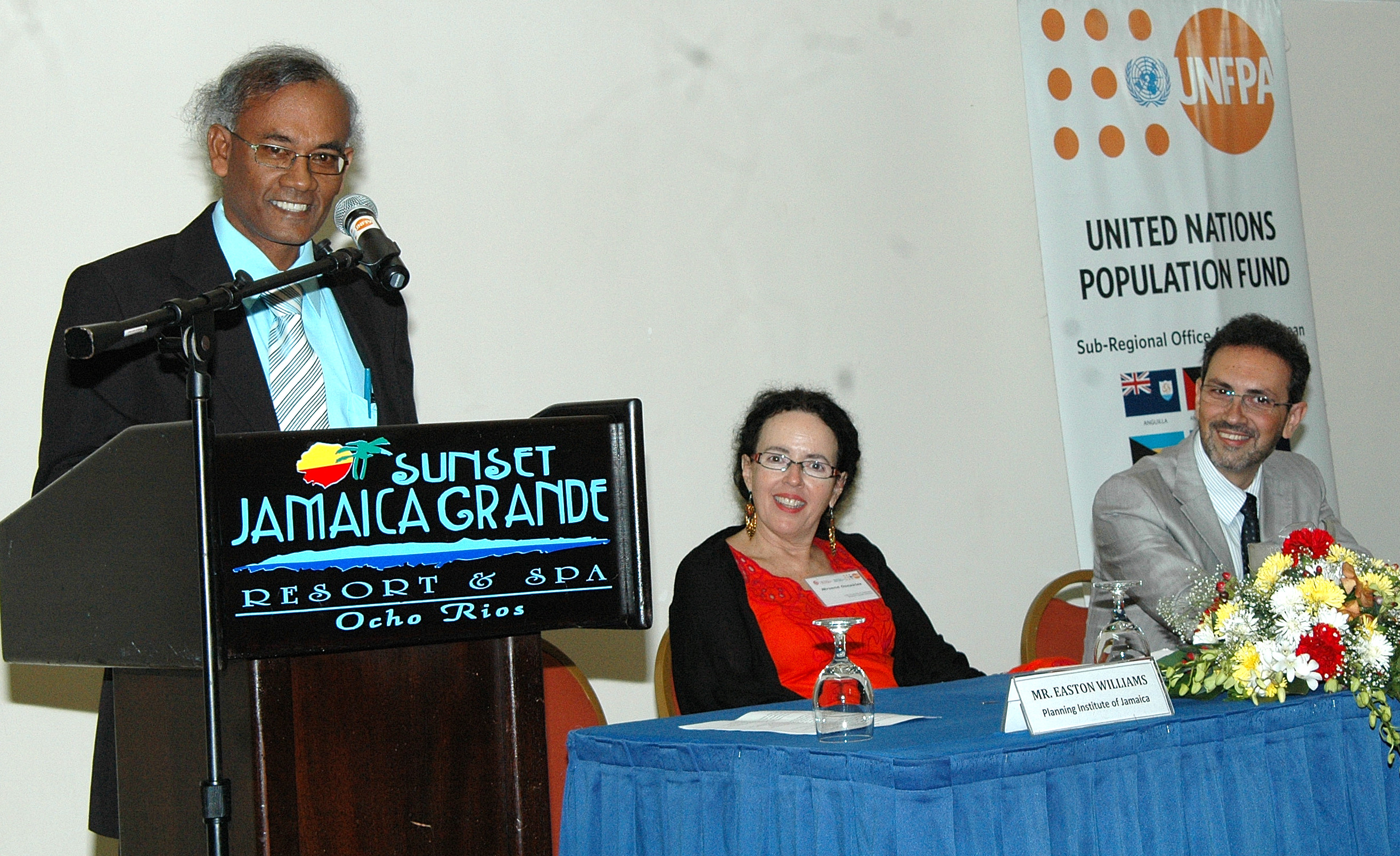Caribbean advocates for population and development issues, including sexual, reproductive health and rights and youth empowerment are being encouraged to unite around common issues of concern for greater impact at the national, regional and international levels.

Beryl Chevannes, Former Executive Director, of Jamaica’s National Family Planning Board, says this strategy was very effective for the Caribbean delegates at the 1994 International Conference on Population and Development (ICPD), held in Cairo, Egypt.
“Caribbean delegates spoke with one voice on issues relevant to the region such as adolescent pregnancies, reduced educational opportunities resulting from early childbearing, sexually transmitted infections, maternal health, child rights and balancing population with development.”
The veteran reproductive health specialist, said, recognizing that governments are the final arbiters of the change they desire, civil society organizations (CSOs) should seek to work with key government partners to build consensus on the issues. “CSOs need to engage the relevant government ministers in order to win their commitment to advance these issues,” she said.
Forty four civil society organizations from 17 countries across the Caribbean, representing a diverse grouping, including faith based, indigenous, adolescent mothers, persons with disabilities, persons living with HIV, LGBT, MSM, sex workers, youth, as well as women’s and men’s groups among others, met in Ocho Rios, April 12-13 to share ideas on, and develop a strategic Action Plan to influence, monitor and follow-up the ICPD Action Plan, beyond 2014.

Easton Williams, Director, Social Planning and Research Division at the Planning Institute and the Government of Jamaica’s representative on the UN Commission on Population and Development, credits the ICPD Programme of Action for placing the concepts of reproductive health, reproductive rights, poverty eradication and also some issues of particular relevance to the Caribbean on the broader development agenda . Mr Williams told regional CSO representatives that “the Caribbean placed the issue of demographic ageing of developing countries and the recognition of a multiplicity of family forms in different social, cultural, legal and political systems on the ICPD Agenda.”
“Today, fertility levels are either at replacement level or near replacement level in all but one country. Legislative changes, policies and institutional strengthening in the areas of children, adolescents and youth, women, persons with disabilities, trafficking in persons, have made significant advances. The link between international migration and development has evolved as an area of global prominence,” he added.
Despite these achievements, Mr Williams noted that most Caribbean countries were lagging in areas of child and maternal health, adolescent reproductive health, transmission of HIV and gender equality. He expressed concern about the possible negative impact of the global economic and financial recession on some of the gains made. Against the background of shrinking financial resources, particularly, for middle income countries, he challenged the NGOs to actively seek non- traditional funding arrangements including public-private-NGO partnerships to deal with critical outstanding issues such as HIV treatment in the post Global Fund era.
The 1994 ICPD Programme of Action is hailed as a milestone, for its concentrated focus on people’s wellbeing and their quality of life. It stressed their entitlement to a healthy and productive life, free from discrimination and that promoting individual rights and dignity are vital for economic growth and sustainable development.
The two day meeting is organized by the Latin American and Caribbean Women's Health Network, LACWHN with support from UNFPA, the United Nations Population Fund.


